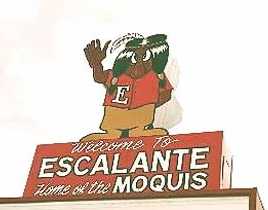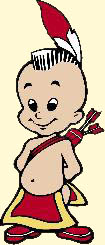By Julianne Jennings
Ten little Injuns standin’ in a line, One toddled home and then there were nine; Nine little Injuns swingin’ on a gate, One tumbled off and then there were eight. One little, two little, three little, four little, five little Injun boys, Six little, seven little, eight little, nine little, ten little Injun boys. Eight little Injuns gayest under heav’n. One went to sleep and then there were seven; Seven little Injuns cuttin’ up their tricks, One broke his neck and then there were six. Six little Injuns all alive, One kicked the bucket and then there were five; Five little Injuns on a cellar door, One tumbled in and then there were four. Four little Injuns up on a spree, One got fuddled and then there were three; Three little Injuns out on a canoe, One tumbled overboard and then there were two. Two little Injuns foolin’ with a gun, One shot t’other and then there was one; One little Injun livin’ all alone, He got married and then there were none.
The original version was written by songwriter Septimus Winner in 1868 and performed at minstrel shows—a form of American entertainment consisting of comic skits, variety acts, dancing, and music. The traditional folk tune has a Round Folk Song Index number 13512 to establish the traditional origin of the work. However, today’s modern lyrics are believed to be in public domain, allowing for various renderings of the song to be created, especially in nursery schools. Sure you can change the words to “Ten Little Indians” to “Ten Little Puppies,” but it is still degrading when trying to compare spilled milk to spilled blood.
In 1869, Frank J. Green adopted the song as Ten Little Niggers which became a standard of the blackface minstrel shows, especially after the Civil War and later into the 1920’s lampooning black people as “dim-witted,” lazy, “buffoonish” and “musical.” Eventually the song became widely known in Europe, where it was used by Agatha Christie. The song was included in the first film version of And Then There Were None (1945), which largely took Green’s lyrics and replaced the already sensitive word “nigger” with “Indian” (in some versions “soldiers”) as African Americans began to score legal and social victories at the turn of the 20th century.
Below: Visual equivalents of the song that treat Indians as children.



No comments:
Post a Comment